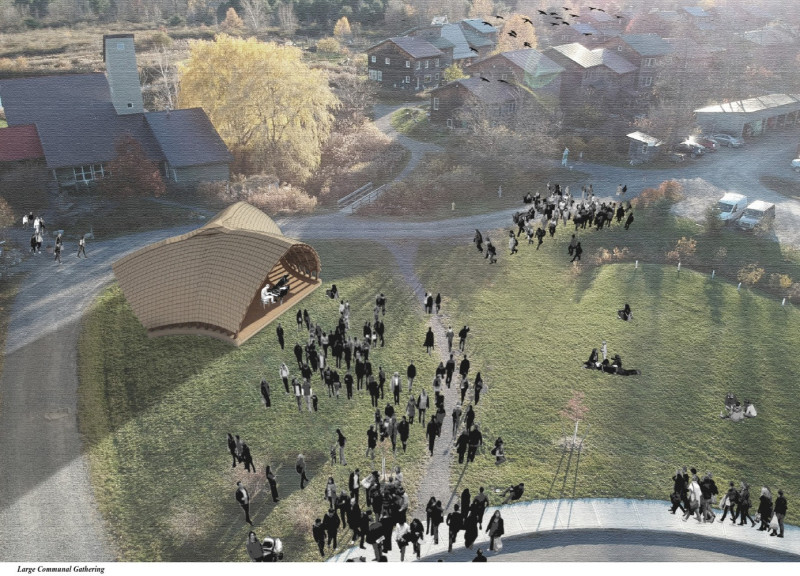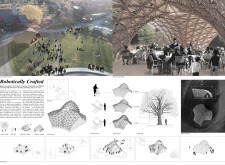5 key facts about this project
The structure's design features an undulating roofline with organic forms that reflect natural aesthetics, enhancing the overall spatial experience. Key elements include strategically placed glass panels that introduce natural light and connect the indoors with the surrounding environment. The innovative use of hardwood, harvested from local forests, underlines the project's sustainability ethos and cultural relevance.
Unique Construction Techniques
Robotic technology plays a significant role in the construction of this project. A robotic leg joining system allows for precise fabrication and assembly of timber components, ensuring structural integrity while minimizing material waste. This method not only optimizes the use of resources but also facilitates the potential for disassembly, aligning with contemporary needs for adaptable environments.
The project distinguishes itself through its commitment to upcycling abandoned trees and utilizing these materials in the construction process. This approach underscores a responsible and sustainable practice that not only addresses environmental concerns but also contributes to the local community's character. Flexible open areas within the interior allow for varied seating arrangements and diverse uses, promoting user interaction and adaptability.
Focus on Community and User Engagement
The spatial organization of the structure prioritizes community engagement. Central open spaces are designed for large gatherings, while smaller alcoves provide intimate settings for discussions and workshops. Interactive elements within the design invite users to engage directly with the architecture, fostering a deeper connection to the built environment.
The architectural design is a reflection of contemporary needs, addressing sustainability and community building through responsible material choice and innovative construction methods. Its unique approach positions it as a significant example of how architecture can respond to both environmental and social contexts.
For a more comprehensive understanding of the "Robotic Leg Crafted" project, including detailed architectural plans and sections, please explore the project presentation to gain deeper insights into the design and its implications.























